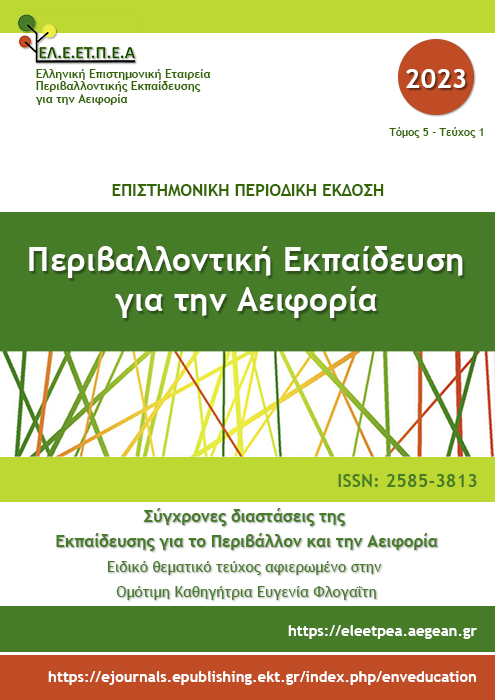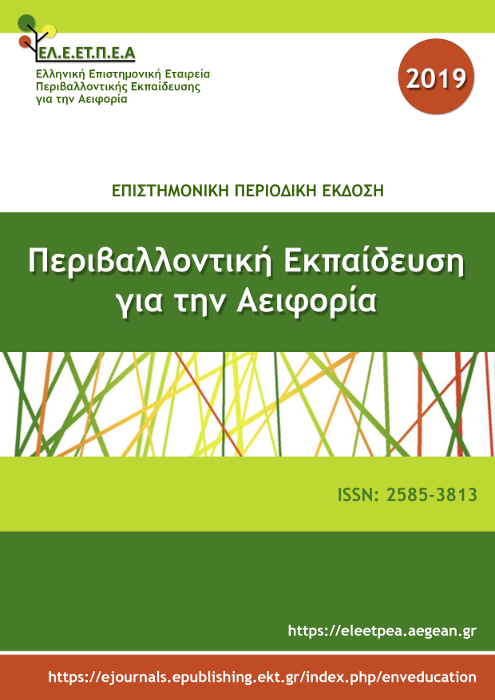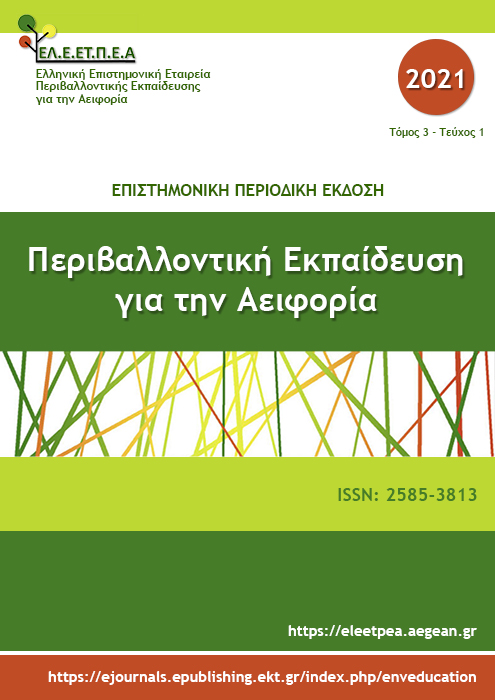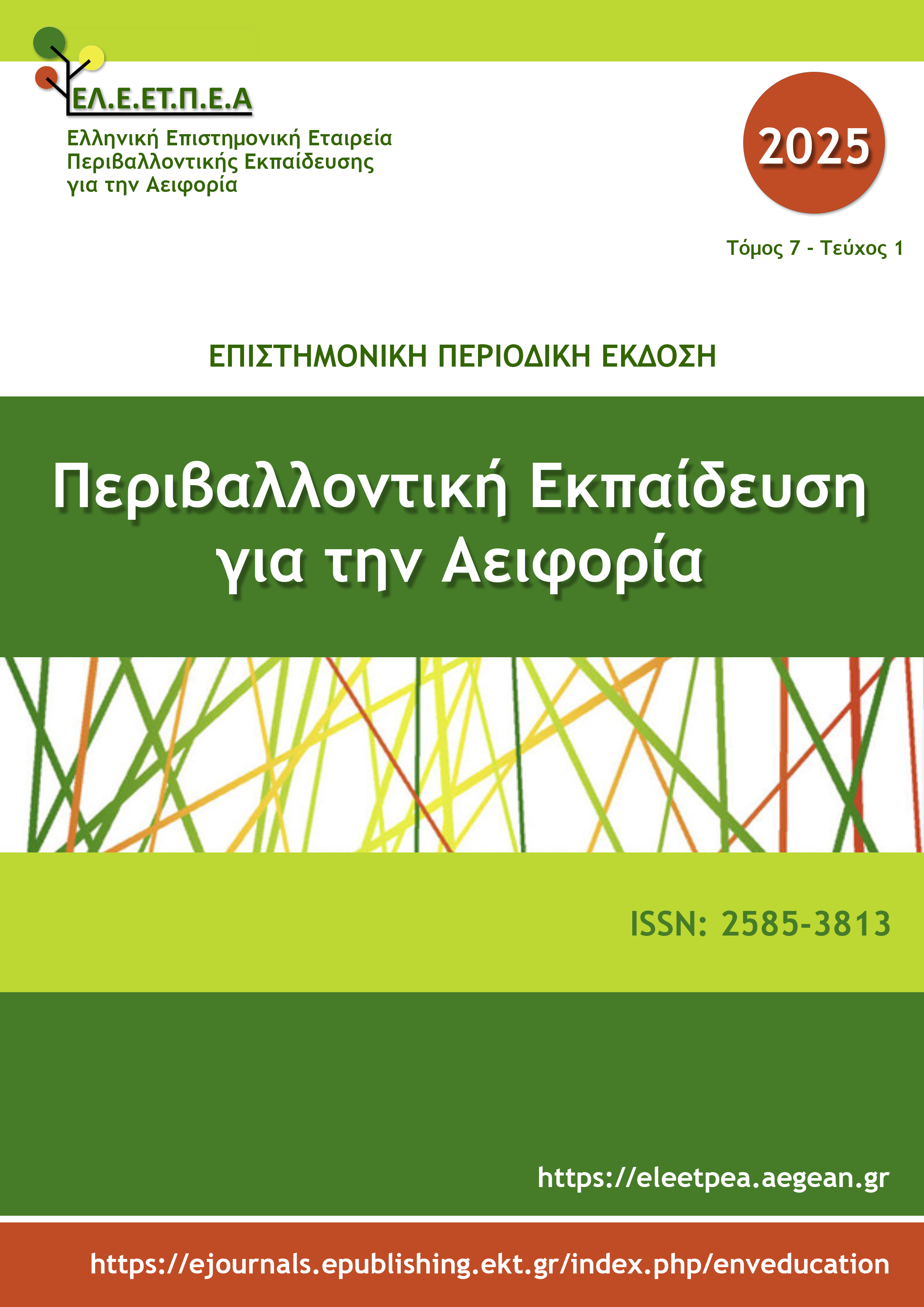Οι παιδαγωγικοί στόχοι της Εκπαίδευσης για το Περιβάλλον και την Αειφορία
Abstract
Pedagogical objectives are an important dimension of Environmental and Sustainability Education since they function as a compass for educational planning. They are the ones who determine the orientation of the subject, differentiate it from other related fields, delimit its content and delineate the learning outcomes. In this text, we analyze the five main categories of pedagogical objectives of Environmental and Sustainability Education, highlighting the main dimensions that teachers and trainers should take into account when planning their educational action. Specifically, we are referring to the awareness of the trainees regarding the issue under consideration, to the knowledge on which we must focus both in relation to the issues we analyze and in relation to basic concepts that permeate all issues, to the attitudes and values both individual and collective, to basic skills that the trainees must develop and finally to participation and action as the culmination of the entire educational process.
Article Details
- How to Cite
-
Λιαράκου Γ. (2023). Οι παιδαγωγικοί στόχοι της Εκπαίδευσης για το Περιβάλλον και την Αειφορία. Environmental Education for Sustainability, 5(1), 34–47. https://doi.org/10.12681/ees.35759
- Section
- Articles

This work is licensed under a Creative Commons Attribution-NonCommercial-ShareAlike 4.0 International License.
Authors retain copyright and grant the journal right of first publication with the work simultaneously licensed under a CC-BY-NC-SA that allows others to share the work with an acknowledgement of the work's authorship and initial publication in this journal.





